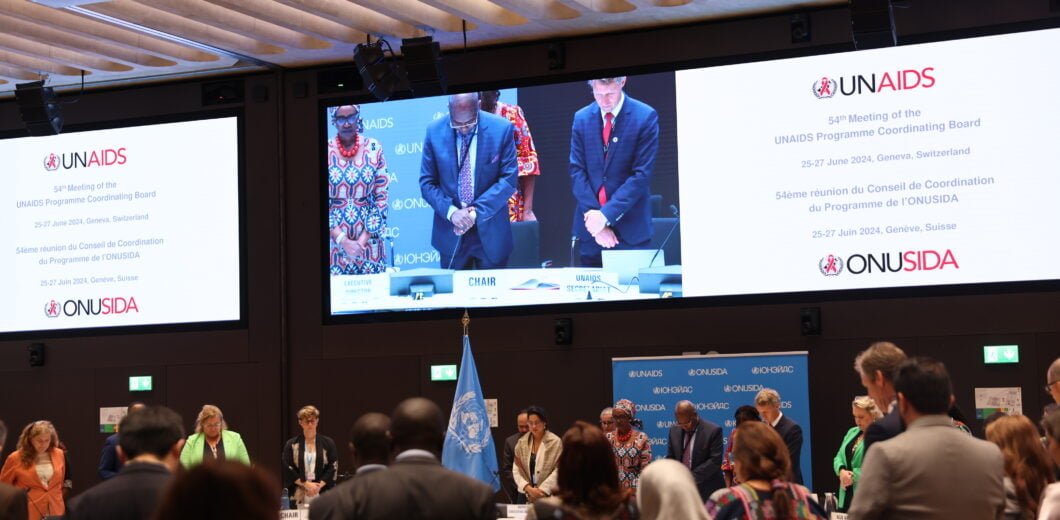The Summary Bulletin contains the following sections: Report of the Executive Director, Report by the Chair of the Committee of Cosponsoring Organizations, Leadership in the AIDS response, Follow-up to the thematic segment from the 53rd Programme Coordinating Board meeting, Unified Budget, Results and Accountability Framework (UBRAF) 2022-2026; Performance Monitoring Reporting, Unified Budget, Results and Accountability Framework (UBRAF) 2022-2026; Financial Reporting, Update on strategic human resources management issues, Statement by the representative of the UNAIDS Secretariat Staff Association, Independent Organizational Oversight Reports and Management Response, 55th meeting of the Programme Coordinating Board and Thematic Segment: Testing and HIV.
The 54th UNAIDS PCB Meeting commenced with considerations about the previous meeting report, followed by the Executive Director’s report, which critically analyzed the global response to HIV and emphasized the urgent need for a holistic approach to ensure sustainability based on human dignity. Discussions covered varied interpretations of sustainability, the urgency of accelerating HIV prevention efforts, and the integration of HIV services into broader health systems. The first day also saw Co-sponsors reaffirming their commitment to the Joint Programme and stressing the need to continue mobilizing financial resources. An active session on Leadership in the HIV Response by Ms. Precious Matsoso urged political leaders to address inequality with the same vigor used in vaccine development. Additionally, actions from the last thematic segment at the 53rd PCB meeting, which focused on Testing and HIV, were reviewed.
On the second day, discussions shifted to UNAIDS’ financial situation and strategic management of human resources. The challenging economic landscape and significant investment gaps threatening the HIV response were highlighted. The 2022-2023 reports showed that cost containment measures and innovative work methods were implemented to mitigate financial shortfalls. While these measures kept the Joint Programme operational, they also reduced its ability to perform core functions and catalytic work. Still, on the second day, the NGO delegation agreed to hold the 55th PCB Meeting in Kenya, believing this would bring stakeholders closer to the realities of the Global South. However, concerns were raised about the safety of people in same-sex relationships, urging member countries to revoke laws that criminalize LGBTQI+ individuals and fail to recognize transgender identities.
The third day focused on the thematic segment « Sustaining the Gains of the Global HIV Response to 2030 and Beyond, » involving governments, multilateral agencies, and civil society representatives. Participants discussed the urgency of sustainability planning and response. It was evident that achieving sustainability requires reducing new infections, AIDS-related deaths, and stigma and discrimination. Ensuring lifelong treatment and care for all people living with HIV also demands political, financial, and programmatic sustainability.
